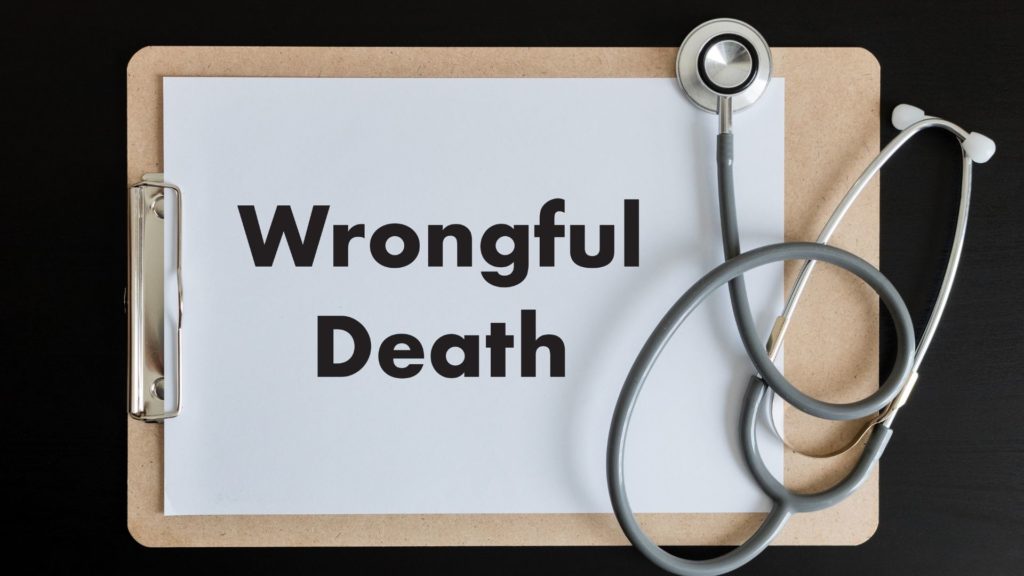
Losing a loved one is always painful. And when that loss was caused by someone else’s wrongdoing or negligence, your grief will undoubtedly be accompanied by anger and confusion. There is simply no way to replace a family member who has passed away. But a wrongful death settlement can help give you and your family much-needed financial stability as you pick up the pieces and move forward. The attorneys at Gerling Law have the experience needed to help you hold the person responsible for your loved one’s death accountable.
How Does a Wrongful Death Settlement Work?
A wrongful death settlement refers to payments you can receive to compensate you for losses caused by the wrongful death of your loved one. Before discussing how a wrongful death settlement can be paid out, you need to know what a wrongful death settlement is. If your loved one’s death was caused by another person’s wrongful or negligent conduct, you or the personal representative of your loved one’s estate might be eligible to file a wrongful death claim. State law will determine who can file a wrongful death claim.
You might be asking yourself, How are wrongful death settlements paid out? You can recover settlement payouts in two ways: a lump sum settlement and a structured settlement. The type of settlement you prefer will be determined by your unique needs and circumstances.
Lump Sum Settlement
In a lump sum settlement, the defendant or their insurance company will pay the whole settlement amount at once. A lump sum is the most common way to pay a wrongful death settlement.
For example, if you have to pay expensive medical bills, you might request a lump sum settlement. An older person with severe health problems would likely want to choose a lump sum settlement as well.
Structured Settlement
A structured settlement means the wrongful death lawsuit payout will be completed in installments. This payment structure will often be requested by a defendant or their insurance company. Sometimes the party paying the settlement will opt to make larger payments over time in exchange for being able to spread out the settlement payments.
How Are Damages Calculated in a Wrongful Death Claim?
Different types of damages can be included in wrongful death suit payouts. In a wrongful death settlement, you may receive compensation for economic losses. You can also recover damages for noneconomic losses.
Economic Damages
Economic damages compensate you for financial losses. You can recover several types of economic damages depending on the state.
In Indiana, economic damages available in a wrongful death claim include the following:
- Hospital and medical costs,
- Burial expenses, and
- Attorney fees.
In Kentucky, the economic damages you can receive in a wrongful death settlement differ slightly and include the following:
- Funeral expenses,
- Administrative costs, and
- Attorney fees.
The economic damages you could recover in a wrongful death claim will depend on multiple factors. A wrongful death attorney can help you identify and calculate your economic damages.
Noneconomic Damages
Noneconomic damages compensate you for the emotional and psychological losses you’ve suffered because of your loved one’s death. If you are filing a claim in Kentucky, noneconomic damages can include the following:
Indiana law also permits recovery of noneconomic damages in wrongful death cases, including compensation for loss of love and companionship and loss of consortium.
Who Can File a Wrongful Death Claim?
Who can file a claim for wrongful death varies from state to state. If you are filing in Indiana, who can file the claim will depend on whether there was a child or adult decedent. If the wrongful death involved a child, either or both of the child’s parents can file a claim. Someone with legal custody of the child can also file if the parents are divorced.
In Indiana, a personal representative of the decedent’s estate is the only person who can file on behalf of an adult decedent. In other words, family members cannot directly file a wrongful death claim for an adult decedent in Indiana. The estate’s personal representative must file the claim.
In Kentucky, the personal representative of the decedent’s estate has to file a wrongful death claim. If the decedent had a will, then the will might appoint a specific person to act as the estate’s personal representative. If the decedent’s will does not name a personal representative, or if the decedent did not leave a will, a court-appointed representative can handle filing the claim.
What Is the Time Limit to File My Claim?
Often there is a time limit that you need to keep in mind when filing a claim. This time limit is called the statute of limitations. The statute of limitations varies by state and also by the type of claim being filed.
In Indiana, you have two years from the date of death to file a wrongful death claim.
Under Kentucky law, the deadline to file your wrongful death claim is as follows:
- One year from the date the personal representative is appointed, or
- Two years from the date of death if the representative is appointed over one year from the date of death.
One or two years may seem like a long time, but when you are dealing with the grief and stress of losing a loved one, it’s easy to lose track of time. That’s why it’s a good idea to start the filing process as soon as possible. The attorneys at Gerling Law can handle all of the details of filing your wrongful death claim, including making sure your claim is filed on time, so you can focus on healing.
How Our Attorneys Can Assist You
The attorneys at Gerling Law have over 125 years of combined experience helping injured clients and their families get justice. At Gerling Law, we never shy away from a fight and have helped our clients recover over $500 million in compensation. We are dedicated to helping injured clients in Indiana, Kentucky, and Illinois move forward by helping them get the compensation they deserve. Contact us today online or by phone to schedule your free case review.

